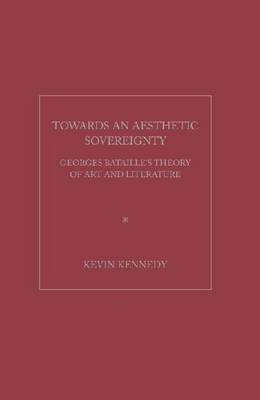This research monograph is the first book-length study of the philosophical premises of Bataille's theory of art and literature. In contrast to many former interpretations of Bataille's work, Dr Kennedy concentrates on Bataille's writings in the wake of World War Two, especially on the first and the last part of his trilogy, The Accursed Share. This is done for two interconnected reasons. Firstly, his work prior to and during the war, such as his essays for Documents, the infamous Inner Experience and The Notion Of Expenditure have received far more critical attention than his later work. Secondly, and more importantly, the author suggests that Bataille's work must in fact be divided into different, distinct stages of productivity, in which his ideas gradually, and sometimes quite significantly, change. This is especially true for his evaluation of art and literature. In far too many critical treatments of Bataille's work one encounters the attempt to impute a single theoretical stance to his work as a whole. By means of his notion of "aesthetic sovereignty", an idea he developed in the wake of the Second World War, Kennedy demonstrates how Bataille's attitude towards the relation between art, society and religion, changed quite substantially in the course of his career as a writer.
The work largely deals with Bataille's writings between 1945 and 1961. The diverse and multidisciplinary approach of Bataille's own work, however, inevitably entails a broad theoretical approach and includes numerous discourses and fields, such as philosophy, art history, literary theory, aesthetics and anthropology. More specifically it contains an in-depth analysis of Bataille's theory of subjectivity and transgression, which are at the basis of his theory of art. Although the work is an analysis of Bataille's writings on art and literature it can also be read as a general introduction into the basic premises of his thought as a whole. The work contains an anthropological analysis of the emergence and the meaning of religious rituals, a discussion of Aztec sacrifice, Greek tragedy, surrealist painting and poetry. Bataille's interpretation of the works of Manet, Picasso and Emily Bronte is also discussed. In addition there is a chapter on the philosophical precursors to Bataille's theory of art, with a special focus on Nietzsche's The Birth of Tragedy and Hegel's Phenomenology of Spirit.
Kennedy's methodological approach primarily consists in a close reading and critical exposition of a number of texts, which contain the key to understanding Bataille's aesthetic theory and, to a certain extent, his postwar work as a whole.
- ISBN13 9781936320806
- Publish Date 22 January 2014
- Publish Status Active
- Publish Country US
- Imprint Academica Press
- Format Hardcover
- Pages 264
- Language English
